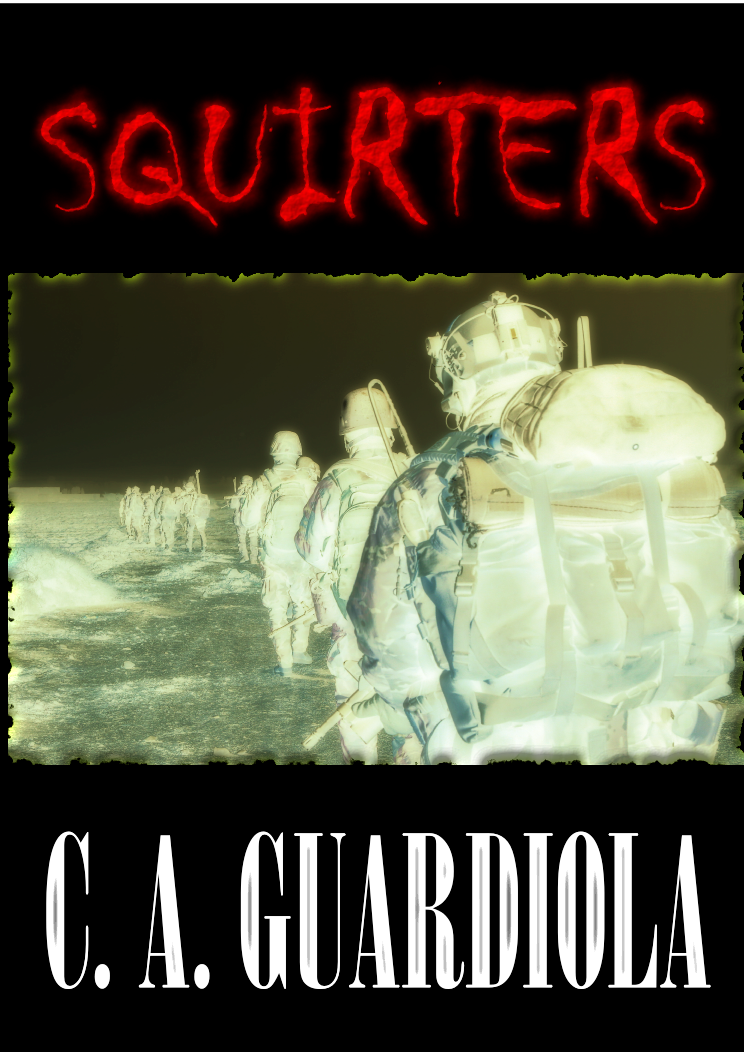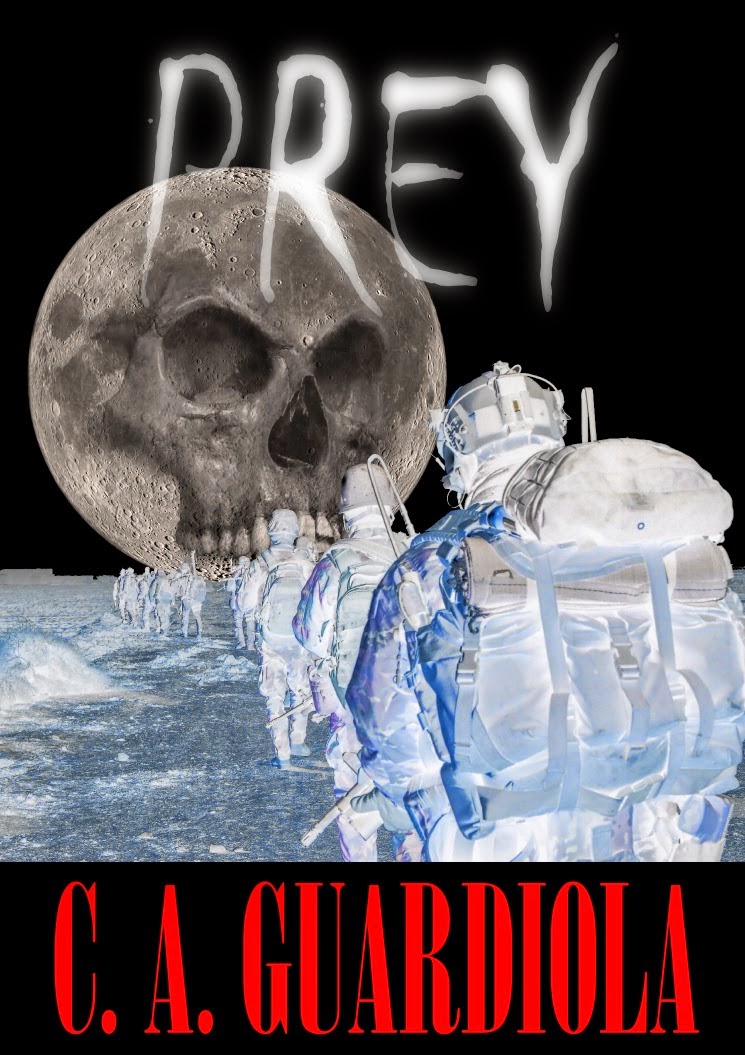I met Jim on Twitter a few months ago and followed him into that hell of an alternate universe called Ello, where we are still slogging through the mud trying to convince ourselves that it's Normandy on D-Day instead of wet sand in the see-saw area of the local park.
Without further ado, we dive into the mind of Jim...
**********************************
1. How did the writing bug bite you -- was it a gradual interest or a thunderclap of inspiration?
I've wanted to be a novelist for as long as I can remember. I think it probably started in a way that will be familiar to a lot of fantasy fans -- I read The Hobbit and The Lord of the Rings and a deep desire to build worlds of my own was born.
For a long time I questioned whether being a writer was a "realistic" decision, and as such I sought out a career as an attorney before finally deciding to go after what I really wanted. I think it was all for the best, however: I'm a better writer because of it, and my life experience to this point has certainly informed my writing in a positive way.
My approach has certainly been gradual, in the sense that I've got a lot of fits and starts under my belt; I've got notebooks and hard drives filled with notes and outlines and partially-finished manuscripts. The story for Exile: The Book of Ever, my first novel, was certainly more of a thunderclap, however: the idea came to me and I started writing the same day. It's funny how it all works.
2. Your first venture is a story in the post-apocalyptic genre with strong faith-based symbolism and lore -- do you think the role of religion is ignored in post-apocalypse stories, or were you more interested in a what-if extrapolation?
The initial concept for The Book of Ever was based on my own speculations about what it would take to survive in a post-apocalyptic world of the type described in the book. Ever Oaks and her people live centuries after a nuclear apocalypse that destroyed or affected most of the world, and while the immediate dangers of radioactive fallout and things of that nature have subsided, they live in what is essentially a 19th Century state of technology.
A lot of the post-apocalyptic fiction, film, and TV you see focuses on people who are basically trying to live the same lives they lived before the apocalypse in a world that is no longer hospitable to that lifestyle, people who are trying to survive the immediate aftermath and figure out how to live now. I wanted to explore the idea of a group of people who embraced the idea of living differently, and who had a definite set of values that set them apart from the mainstream, and see how they fared against the ruins of a civilization reduced to barbarism and the struggle for basic survival.
Have you ever played the game of looking around at people, either friends or strangers, and asking yourself how they'd fare if the world ended tomorrow and they were forced to survive without 21st Century technology and resources? I think we all know two types of people: people who'd make it work, and people who'd be hopelessly out of their element. With Exile, I focused on a community that had prepared for the apocalypse centuries before, and which survived it and, relatively speaking, flourished in it because they focused on timeless values like preparedness, community, charity, and faith.
I think the role of religion is either mostly ignored or focused on to the exclusion of everything else: your options seem to be The Walking Dead, which is gritty, realistic, and violent (don't get me wrong, though, I like it as much as the next guy), and books like Left Behind, which is an entirely Christian-centric view of the Rapture and the End Times. I was interested in finding a common ground between the two, and exploring how people of faith might use their values, abilities, and beliefs to aid in their survival.
I also wanted the novel to be balanced, in regard to the Christian elements. My intention was to put the Christian elements in there for readers who were interested without turning them into a distraction for those who aren't. I don't view Exile as Christian novel, so to speak, but rather a novel with Christian characters in it. I may or may not have achieved that, but I hope that there's something in the story for everyone.
3. Which authors or books gave you the most inspiration to write?
How long do you have? Hah. Tolkien was a huge inspiration to me, of course, as was Tad Williams. If The Lord of the Rings made me love fantasy, Memory, Sorrow, and Thorn made me realize I wanted to write it. On the science fiction end of things, William Gibson was a big inspiration, too.
Outside of the genre, the writers that inspired me to write included Hemingway, Faulkner, and Michael Chabon. Reading Chabon taught me that you could think outside the box and tell the stories you wanted to tell and stories that entertained and still be a great writer acknowledged for his craft.
4. Was your protagonist, Ever Oaks, modeled after a specific person or was it a composite sketch of different character traits?
She's a composite sketch, but her best qualities--courage, determination, faith, intelligence -- are reflections of my wife, who is the best person I've ever known and an example to me every day of my life.
5. The story of Ever Oaks continues past the first book -- was this a planned series or did you reach the story's end and feel that there was more to the character's adventures?
It was most definitely a planned series -- a trilogy, to be precise. I did want each book to have its own narrative arc, but the story as a whole is only one-third finished. Here's hoping I can fit the rest of it in two more books.
I know where they started, where they're going, and the broad strokes of what happens, but the middle of the story often ends up telling itself as I write.
6. Are there other genres that hold your interest or in which you'd like to write someday?
Absolutely! My wheelhouse is fantasy and science fiction, both YA and adult, but I'd also like to write some mainstream literary fiction. I'm working on a book of short stories right now that is pretty much literary fiction, for lack of a better term, though there are some magical realist elements to it.
I've also got a thriller in me of some kind, probably paranormal. That project excites me, but at the moment all I've got are some incomplete ideas.
7. Which is the next book you're planning on reading, and why?
I just finished Words of Radiance by Brandon Sanderson, which was good but too long. I'll be posting a review at my website. I'm planning on reading Oryx and Crake by Margaret Atwood next, mostly out of simple curiosity: I've heard a lot of good things about Atwood, and wanted to check it out.
I'm also reading a couple of nonfiction books at the moment: The Coming of the Third Reich by Richard J. Evans, and Rough Stone Rolling, a biography of Joseph Smith, the founder of the Mormon Church.
8. Do you find it easier to write straight through as you work the scenes in your head, or do you edit as you go along? Which is more productive for you?
I tend to edit as I go. I find that blowing through a scene or chapter only results in missing things, for me, so I write carefully and try to think about the scene in detail as I write. I don't tend to write in drafts, so to speak; it's more a continuous editing process.
9. Going from lawyer to writer was quite a switch -- were there any moments of hand-wringing or cautionary self-assessment?
It was certainly a risk financially, in the sense that writing income isn't always as "stable" as receiving a traditional salary or billing hours as a private attorney. But I think it would actually have been harder for me not to do it: I'd been thinking about writing for so long that I had to at least try it out. I found that I wasn't nearly as able to focus on it as much as I'd like to while still working as a lawyer.
10. Anything else you'd like to tell us about your upcoming plans or projects?
I'm working on the sequel to Exile, Extinction, which is Part 2 of The Book of Ever. In addition to that I'm writing a stand alone sword and sorcery novel for adults, tentatively titled The Trials of Karthanas, and I've also got about half of a book of short stories written. So there's a lot on the stove at the moment--and I couldn't be more excited about it!
Thank you for such a wonderful interview!
**************************************
No, on the contrary, I thank Jim for taking time out of his busy schedule of writing and editing and feeding the two cats which every fantasy author receives upon publication of their first novel to instead ruminate on his responses to this interview. Jim, we wish you the best of luck with your future books, and we look forward to Book 2 of the next Ever Oaks novel!
Again, Exile: The Book of Ever, Part I, available here from Amazon, and free until Sunday 11/23, so grab your digital copy now! Of course, it wouldn't kill you to pay for it, either...






.jpg)









.jpg)
